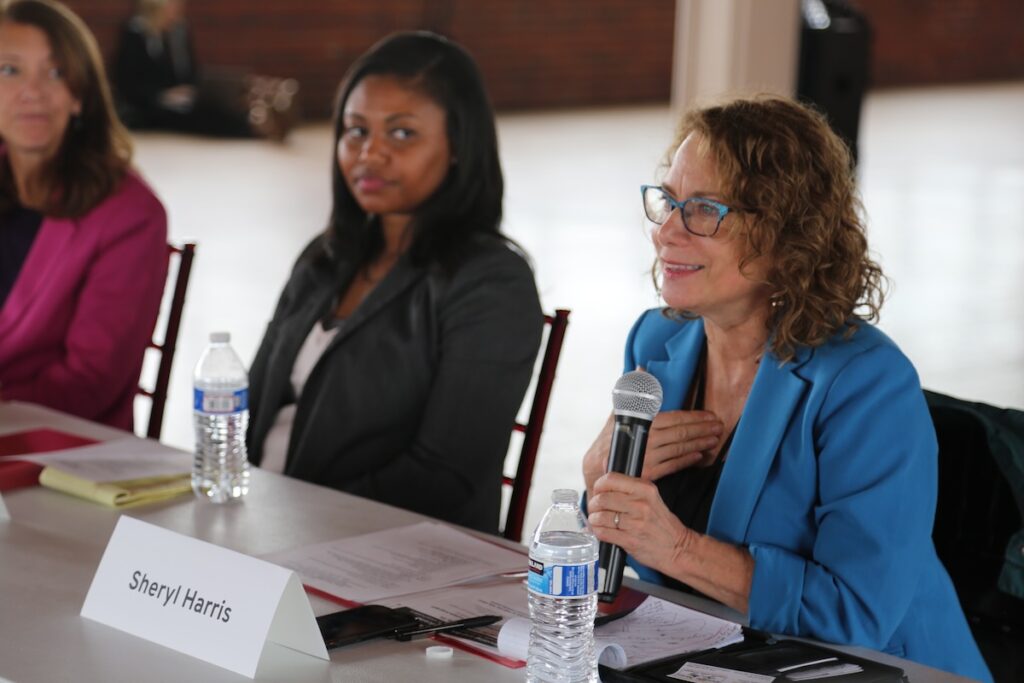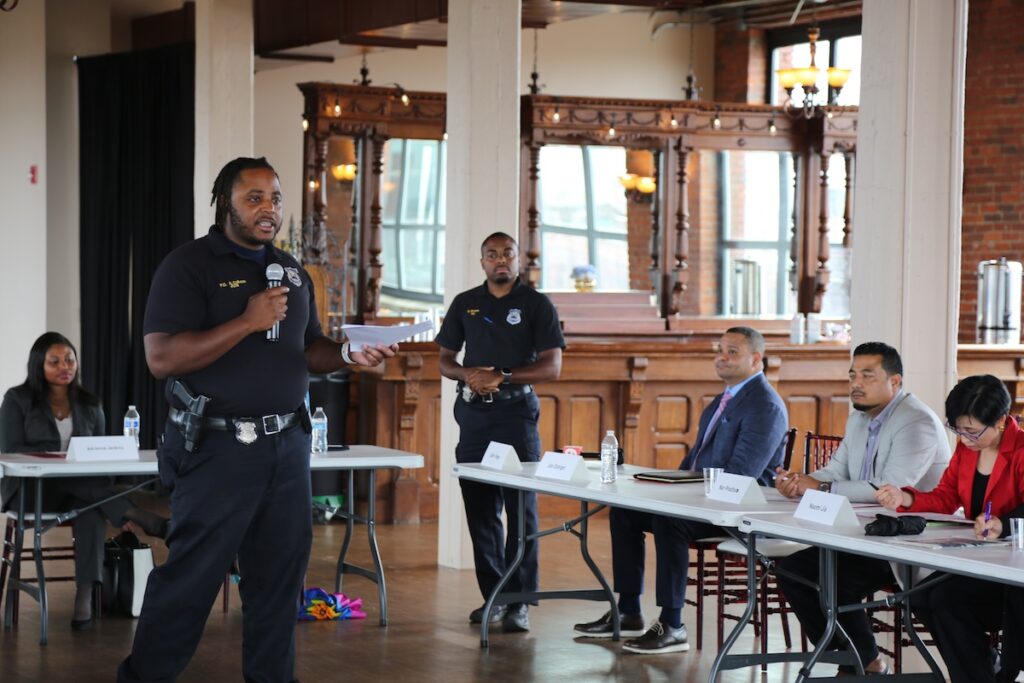“They have perfected their game.” That is Sheryl Harris’ blunt assessment around the growing sophistication of scammers and con artists preying on Americans nationwide to the tune of some $10 billion in 2023.
“These scams are devastating to people,” she said.
Harris, a former investigative journalist, now directs the Department of Consumer Affairs in Cuyahoga County, Ohio, which convenes the Scam Squad, a taskforce of local, state and federal law enforcement agencies focused on scams and scammers operating in the county.
She spoke during a convening of more than 60 representatives from ethnic media, law enforcement and community stakeholders in Cleveland last week organized by Ethnic Media Services in partnership with the Federal Trade Commission.

The event marked the 40th city in more than a decade of collaboration between ethnic media and the FTC as it works to inform diverse communities about the threats posed by scams and the resources available to those who fall victim. A similar convening was held in July, in Jackson, Mississippi.
To list the type and variety of scams now proliferating across the country would fill an entire library. But even those discussed during the September 24 convening convey both the increasing brazenness and technological prowess of what are often criminal networks operating both within and without the country.
Harris shared the example of an Ohio woman who was on her computer when an alert popped up warning of a virus. The alert included a phone number to call, which led directly to a scammer. Posing as law enforcement, the scammers told the woman that drug dealers had accessed her bank account. They then proceeded to move money from her account in real time, as she watched on her screen.
The scammers later warned her that she was in physical danger. Fearing for her safety, she sold her home, with the money from the sale ultimately siphoned off by the same scammers.
“This all happened within a three-to-four-month window,” said Harris.
Another example, this one from Katherine Hollingsworth with the Legal Aid Society of Cleveland, involved a woman being sued by her bank after depositing a check she received for remote part-time work. The supposed employer then contacted the woman, now a client of Legal Aid, letting her know she was paid more than she earned and that she would need to return some $2,000 via gift card.
Later, the bank informed her the original check was fraudulent and that her account was now overdrawn. The bank charged the woman with theft.

“The more work we do to get the word out, the less work we have,” noted Hollingsworth, echoing other speakers about the importance of victims coming forward to report when they or someone they know has been scammed.
Cleveland is home to a growing immigrant and refugee population, communities that are helping spur growth after decades of economic and population decline. Yet many of these newcomer communities are unfamiliar with how government and business operate in the US, making them more vulnerable to would-be scammers.
Attendees shared numerous stories of scams targeting Cleveland’s Arab, African and API communities, among others.
Across Ohio, there were thirty thousand reports of fraud and fifteen thousand reports of identity theft in the first half of 2024, with losses totaling more than $100 million, according to the FTC’s Adrienne Jenkins. “We have the stats,” she stressed, “but we want to hear the stories.”
Larissa Bungo is a senior attorney with the FTC’s Division of Consumer and Business Education and is based in Cleveland. She says some of the more common scams her agency is seeing these days involve imposter scams, whereby criminals pose as law enforcement, threatening potential victims with arrest.
“You know it’s an imposter scam if they call unexpectedly, there is a sense of urgency, and they demand payment via non-traceable methods” including gift cards or crypto currency, Bungo explained.
As if to bring home Bungo’s message, Cleveland police office Derrick Brown addressed the room, relating how just the week prior his office received reports from residents saying they’d been called by an individual claiming to be Officer Brown, demanding they purchase and deliver $50 Target gift cards or face arrest. The caller had Brown’s badge number, among other details.
“We don’t do that at all,” Brown said. “I’m sure this is still happening,” he added.
Brown, along with Detective Adrian Calhoun of Cleveland PD, offered tips to residents for how to avoid being the target of a scam. These include paying inside at gas stations, as scammers are increasingly attaching skimmers – devices that can read a card’s information, allowing access to personal bank accounts – to card readers. When purchasing items via Facebook Marketplace or other online platforms, meet the seller in a public location, including local police stations.

“If someone says they are from law enforcement, hang up and call the official number,” urged Harris. “If you see a pop-up screen on your computer, unplug it for a few minutes. Even if it looks scary, there is usually a low-tech solution.”
Agent Patrick Koeth with the Federal Bureau of Investigation told the room that when it comes to scams, the bureau has “shifted from trying to get the bad guy to trying to get the money back.”
He related a recent case involving one victim who lost $40,000 in a crypto currency related scam. “The FBI tracked the transactions to a wallet overseas worth about $2 million… seized the wallet and refunded the money to the victims.”
Koeth reiterated the importance of reporting scams, no matter how small, noting such incidents rarely happen in isolation and that reports allow law enforcement to detect patterns and trends that can more easily lead to arrest and/or recovery of lost funds.
“That information is super important to us,” he said.




